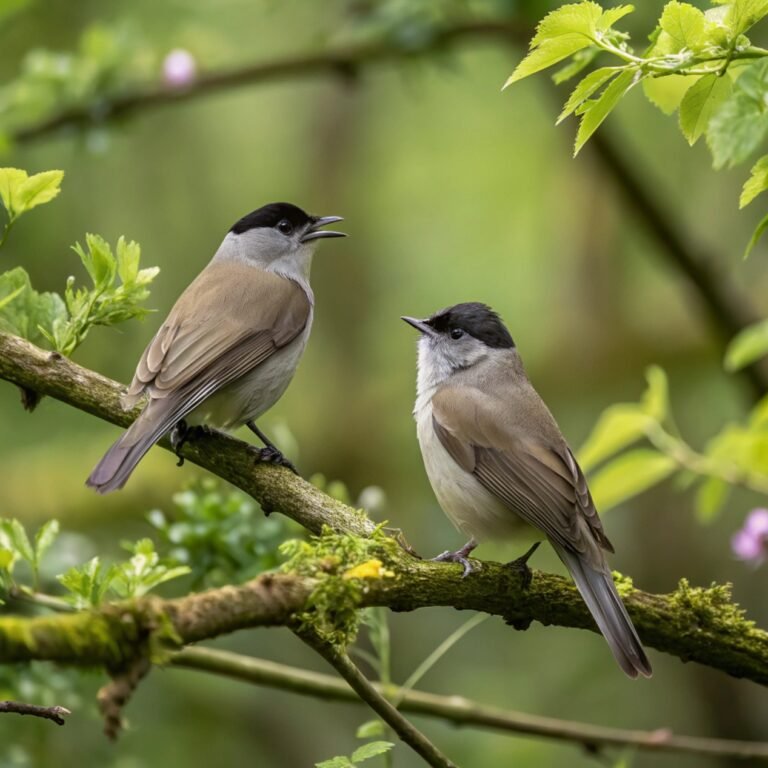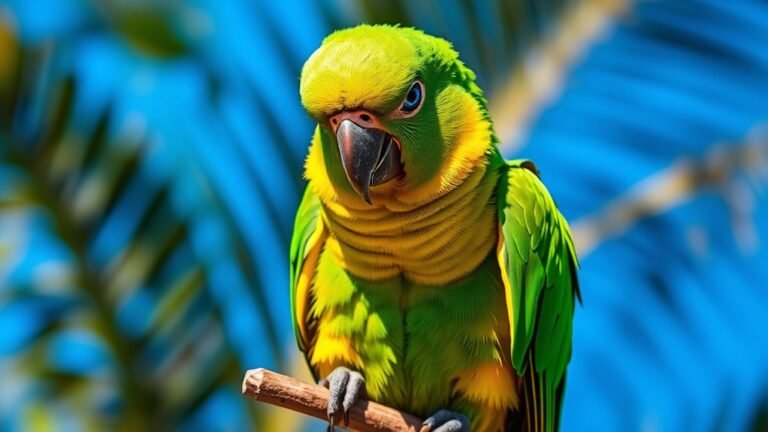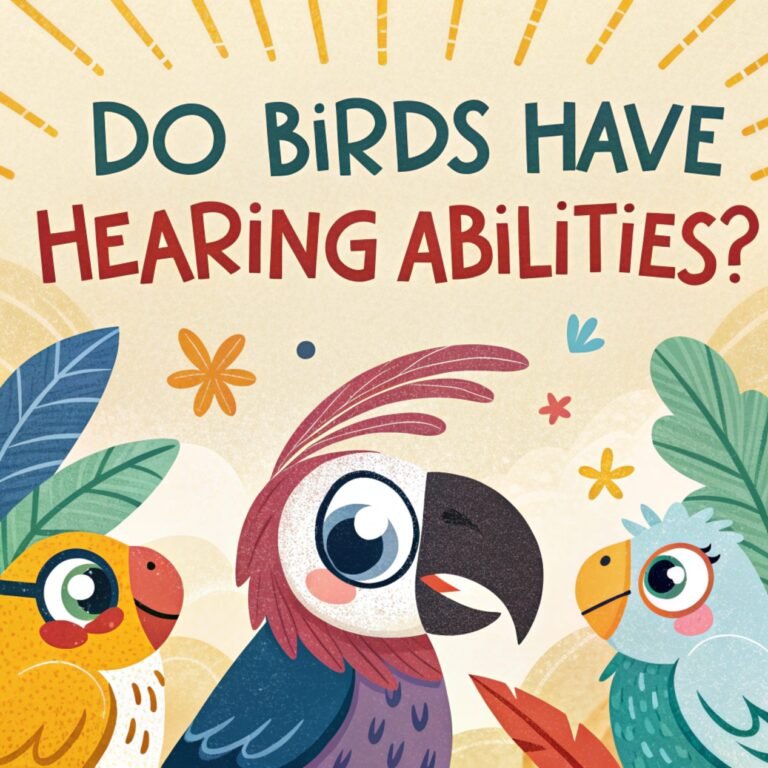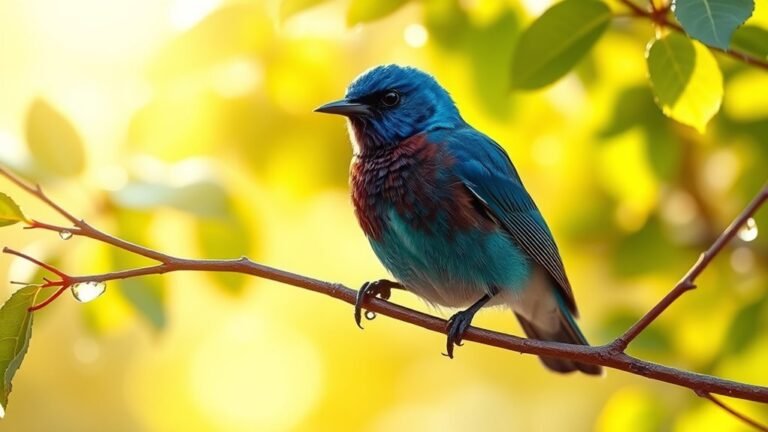Understanding Free Birding and Its Significance
Free birding is a refreshing approach to birdwatching that focuses on enjoying nature without strict plans. This method allows you to connect more deeply with the environment. You can observe how birds live and interact in their natural settings. This relaxed style boosts your appreciation for wildlife. It also helps you connect with other birdwatchers. As you delve into free birding, think about how it enhances your experience and affects the environment around you.
Key Takeaways
- Free birding encourages spontaneous exploration without strict rules, enhancing the joy of discovering new bird species.
- It fosters community connections, allowing birdwatchers to share experiences, knowledge, and conservation efforts.
- Engaging in birdwatching decreases stress, promotes well-being, and deepens appreciation for nature's beauty.
- Mentorship programs help newcomers gain confidence and passion for birdwatching, enriching the community.
- Ethical birdwatching practices, such as respecting nesting sites, contribute to bird conservation and a healthy ecosystem.
The Concept of Free Birding

What does it mean to engage in free birding?
Free birding is about enjoying birdwatching without strict rules. You choose when and where to go, letting the moment influence your plans.
You might explore local parks or hike trails, discovering birds in new spots. This relaxed method encourages you to connect with other birdwatchers. You share experiences and sightings, creating a sense of community.
As you explore freely, you improve your observation skills and grow your appreciation for nature. Free birding celebrates the joy of discovery and the beauty of the outdoors.
Historical Context of Birdwatching
Birdwatching has a rich history across many cultures. People have been fascinated by birds for centuries, turning observation into a meaningful activity. In ancient times, watching birds had cultural importance and appeared in art and folklore. Different societies honored certain bird species, helping to shape their identities and connect with nature.
In the 18th and 19th centuries, birdwatching became popular among the wealthy. This shift helped drive conservation efforts and scientific research.
Today, birdwatching continues to unite people from different backgrounds. It enhances our appreciation of birds and raises awareness about environmental issues.
Benefits of Observing Birds in Their Natural Habitats
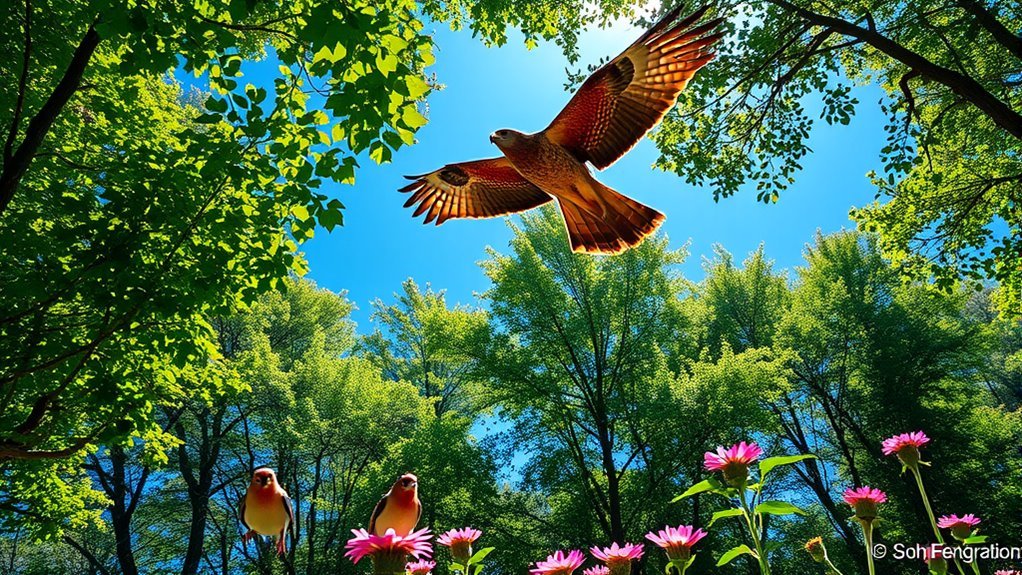
Birdwatching offers many benefits by observing birds in their natural habitats. This activity lets you connect with nature and learn about bird behavior.
Here are three key benefits you can enjoy:
- Increased Awareness: Watching birds helps you notice changes in the environment. This can lead to greater awareness of the need for habitat preservation.
- Relaxation and Mindfulness: Birdwatching can help you relax. Spending time in nature can improve your mental well-being as you focus on the peaceful surroundings.
- Community Connection: Joining other birdwatchers helps build a sense of community. You can work together to support conservation efforts that protect vital habitats.
Every time you see a bird in flight, you're reminded of the beauty and vulnerability of our environment.
Techniques for Practicing Free Birding
While practicing free birding, you can use several techniques to improve your experience and understanding of birds.
Start by improving your observational skills. Spend time watching birds' behaviors and flight patterns. Use field guides or mobile apps to help identify species, noting their calls and markings. Keep a personal journal to record your sightings and thoughts, connecting you to other birders.
Try different locations and times of day; each offers unique chances for discovery. Lastly, be patient. The more you observe, the more you'll learn about these amazing creatures, helping you feel like a part of the birding community.
The Role of Patience in Birdwatching
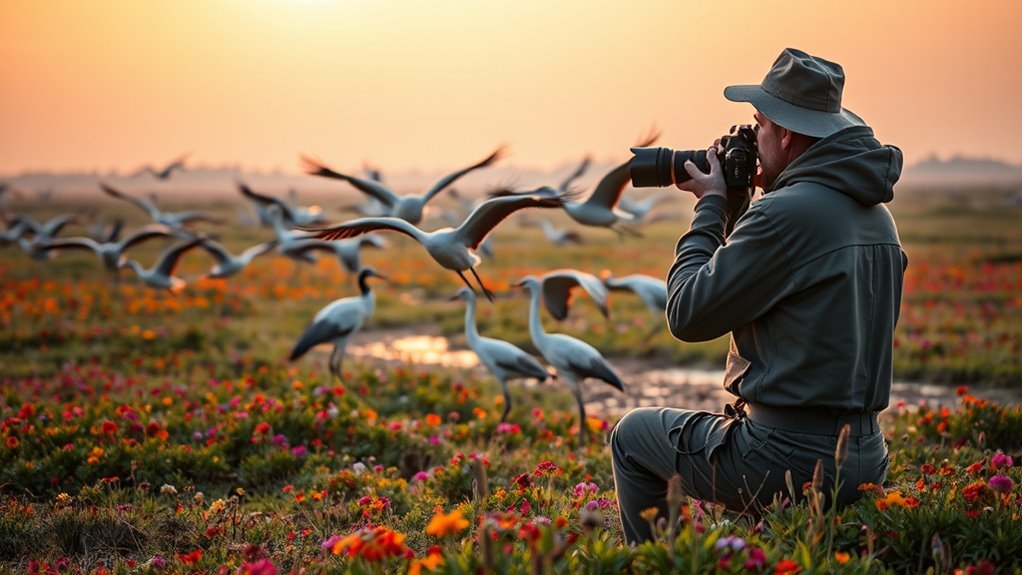
Birdwatching can be exciting, but patience is the most important skill you can learn.
Waiting quietly helps you notice details and connect with nature. Here are three benefits of practicing patience:
- Increased Awareness: By staying still and quiet, you notice sounds and movements better, enhancing your experience.
- Stronger Connection: Patience allows you to observe bird behaviors, helping you feel connected to nature.
- Improved Skills: Regular practice of patience enhances your birdwatching skills, making each outing more enjoyable.
When you embrace patience, you'll enjoy a more meaningful birdwatching experience.
Identifying Bird Species in the Wild
Birdwatching teaches patience and helps you identify bird species in the wild. Focus on the size, color, and behavior of each bird you see. This attention makes it easier to recognize different species.
Use field guides to assist your identification and connect with nature. Notice small changes in plumage or calls; these can indicate different birds.
Connect with other birdwatchers to share your discoveries and learn from them. Together, you build a shared interest that enhances your understanding and enjoyment of birds.
The Ethical Considerations in Birding
Birding comes with ethical responsibilities. Being mindful of these responsibilities enhances your experience and protects the environment.
Follow these guidelines for responsible birding:
- Respect nesting sites. Avoid disturbing birds during breeding seasons.
- Stay at a safe distance. Use binoculars to watch birds without intruding on their habitat.
- Leave no trace. Take your trash with you and limit your environmental impact.
By observing these practices, you support bird populations and contribute to a healthy ecosystem.
Enjoy your birding journey!
Promoting Conservation Through Free Birding
Free birding is a powerful tool for conservation. It allows people to enjoy nature while helping to protect birds and their habitats. When you go birding for free, you join a community that cares about conservation and habitat preservation.
Every time you observe a bird, you provide important information to local conservation groups. This information helps them understand bird populations and the health of their habitats.
By sharing your birding experiences, you help raise awareness about endangered species. This can motivate others to take action for these birds. Your enthusiasm can lead to real change.
Together, you can advocate for policies that protect natural environments. Connecting with fellow birders creates a sense of community, united by the shared mission of creating a better world for future generations.
Enjoy the beauty of birding while making a difference!
Connecting With Nature and Mental Health
Spending a few hours birdwatching can improve your mental health. Being in nature offers mindfulness benefits, helping you feel calm and present.
Birdwatching acts as a form of therapy for your mind. Here's how it can help:
- Reduces Stress: Watching birds lowers cortisol levels, which can decrease anxiety.
- Enhances Focus: Birdwatching requires attention, helping you stay engaged in the moment.
- Encourages Social Connection: Joining other birders can build friendships and create a supportive network.
Birdwatching is a straightforward way to boost your mental well-being while enjoying nature.
The Impact of Birding on Local Ecosystems
Birdwatching may appear to be a simple hobby, but it has significant effects on local ecosystems. When you watch birds in their natural surroundings, you help preserve their habitats. Your interest can encourage others to value these areas and support their protection.
Birdwatching also helps maintain ecological balance. Each bird species contributes to biodiversity and plays a role in its ecosystem. Some birds aid in seed dispersal, while others help manage insect populations. This interaction supports plant health and overall ecosystem stability.
Engaging in birdwatching builds a stronger connection with nature. It creates a community of people who are committed to protecting the delicate balance of life around us. Enjoying birding not only enriches your experience but also fosters environmental care among others.
Community Engagement and Birdwatching
Community engagement in birdwatching builds unity among enthusiasts and fosters appreciation for nature. Participating in this activity enhances personal enjoyment while strengthening community ties through shared experiences.
Here are key aspects to consider:
- Group outings connect you with others as you observe and learn about different bird species.
- Workshops and events let participants share knowledge and stories, which enriches the community.
- Conservation efforts bring birdwatchers together, fostering a sense of purpose and belonging.
Engaging with fellow birdwatchers not only enriches your experience but also creates lasting friendships.
Resources for Aspiring Free Birders
To begin your journey as a free birder, use helpful resources. Start with apps like Merlin Bird ID and websites such as the Cornell Lab of Ornithology.
These tools offer beginner guides to help you identify local birds and learn more. Field guides are also useful; they provide pictures and details about bird behavior.
Join online forums or local birding clubs to connect with experienced birders who can share their knowledge. Using these resources will improve your skills and help you feel part of the birding community.
Your adventure starts now, and the skies are ready for your discovery.
Inspiring Future Generations of Bird Enthusiasts
Inspiring future bird enthusiasts is about sparking curiosity and love for nature.
Your role as a mentor can greatly influence young people.
By joining mentorship programs, you can help emerging birders feel welcome.
Here are three effective ways to contribute:
- Host Birdwatching Events: Organize open events for newcomers to see and learn about birds.
- Share Knowledge: Use social media or local groups to provide tips and personal stories about birding.
- Encourage Participation: Create welcoming spaces where everyone can explore their birding interests.
Your involvement can nurture the next generation of bird lovers.
Engage with them and share your passion!
Frequently Asked Questions
What Equipment Do I Need for Free Birding?
For free birding, you need quality binoculars. Choose either roof prism or Porro types for clear viewing. Also, get a bird field guide. This guide will help you identify different species. It can also help you connect with other birders in your area. Enjoy your birding experience!
Can I Birdwatch in Urban Environments?
You can birdwatch in urban areas. Urban birdwatching lets you see many bird species. Look in parks, rooftops, and green spaces to find birds living in your city. Observing these birds can enrich your experience and help you appreciate nature in an urban setting. Enjoy the simple delight of watching birds adapt to city life.
How Do Weather Conditions Affect Birding?
Weather conditions have a significant impact on birding. Seasonal changes affect when birds migrate. For example, warmer weather can lead to earlier migrations. On the other hand, storms might make birds harder to spot. Paying attention to these changes can deepen your appreciation of nature.
For birders, understanding weather patterns can enhance your birdwatching experience. You may see different species depending on the season and weather. This awareness can make your outings more enjoyable and rewarding. Enjoying the beauty of birds while observing how weather influences their behavior can create memorable moments.
Is There a Specific Time of Day Best for Birding?
The best times for birding are early morning and sunset. During these hours, birds are very active. They sing and feed, creating an engaging atmosphere. This is a great time to connect with nature and enjoy its beauty.
Are There Local Clubs for Free Birding Enthusiasts?
Yes, there are many local groups for birding enthusiasts. These organizations host community workshops that help improve birdwatching skills. Joining these groups allows you to meet other nature lovers who enjoy birding.

Hello, I’m Emily Price, the founder of Birds Affection. As a passionate bird enthusiast and spiritual seeker, I’ve always been fascinated by the symbolic meanings and mystical connections between birds and our lives. On this website, I share my knowledge and insights on the spiritual significance of various bird species, exploring their roles as messengers, guides, and teachers. Through my writing, I aim to inspire and educate others on the profound wisdom and beauty that birds bring to our world. Join me on this journey as we delve into the enchanting realm of bird symbolism and discover the hidden meanings behind these magnificent creatures.


